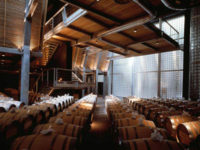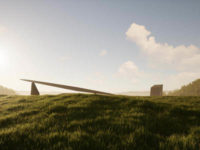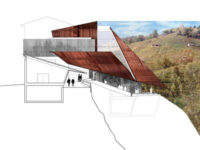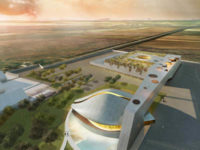Three Winery in Mezzacorona
Landscape in a bottle in Trentino Alto Adige
An abandoned industrial area. Twelve hectares immersed in an agricultural landscape traversed by the Adige River, between Bolzano and Trento.
A valley landscape supporting two figurative domains: hillside vineyards and infrastructures running in the valleys between them.
The first defines a dense pattern of undulating parallel lines wrapping the hillsides. The second carves into the landscape and the territory with deep and sinuous incisions running parallel to the valley bottoms: two railway lines, motorways from the Venetian Plain to Bolzano and on to Austria. State and provincial roads running along the banks of the Adige River, all standing beneath a vast wall of dark stone.
The industrial warehouses are to be demolished to make room for a new winery, the largest in Europe, that will occupy more than twelve hectares, to be fulfilled in multiple phases.
The first phase being a structure originally designed to produce 5 million bottles of sparkling wine, with a historic cellar for the most prestigious vintages, parking and a tasting area. Alongside this structure is a vinification cellar, a cafeteria and a storage area.
The second phase concerns a large bottling structure with a sales area, a new two-storey building with exhibition space and, during the third phase, a 1,400-seat auditorium.
The resulting large industrial complex is marked by a new and experimental architecture projected toward a European dimension. A true “citadel of wine”.
Unitary and complex, the project is marked by the coexistence of various activities and functions, analogous to a historic city. It offers the possibility to visit the site, to rest in the park and wander through the commercial area. By day hosting lectures and seminars, by night performances for more than 1,000 people.
A large roof, supported by laminated fir wood beams and steel tie rods, recalls the pattern of the surrounding vineyards. It extends across more than three hectares coming to rest on an “artificial embankment” in glass and steel that defines the long side of the lot.
In one corner, four large boxes clad in aluminium sheets protrude from the ground. They are inclined by 15 degrees, just like the “champenoise” bottles aging inside them.
Steel stairs and walkways wind throughout the complex, connecting the various processes taking place in the two cellars.












































